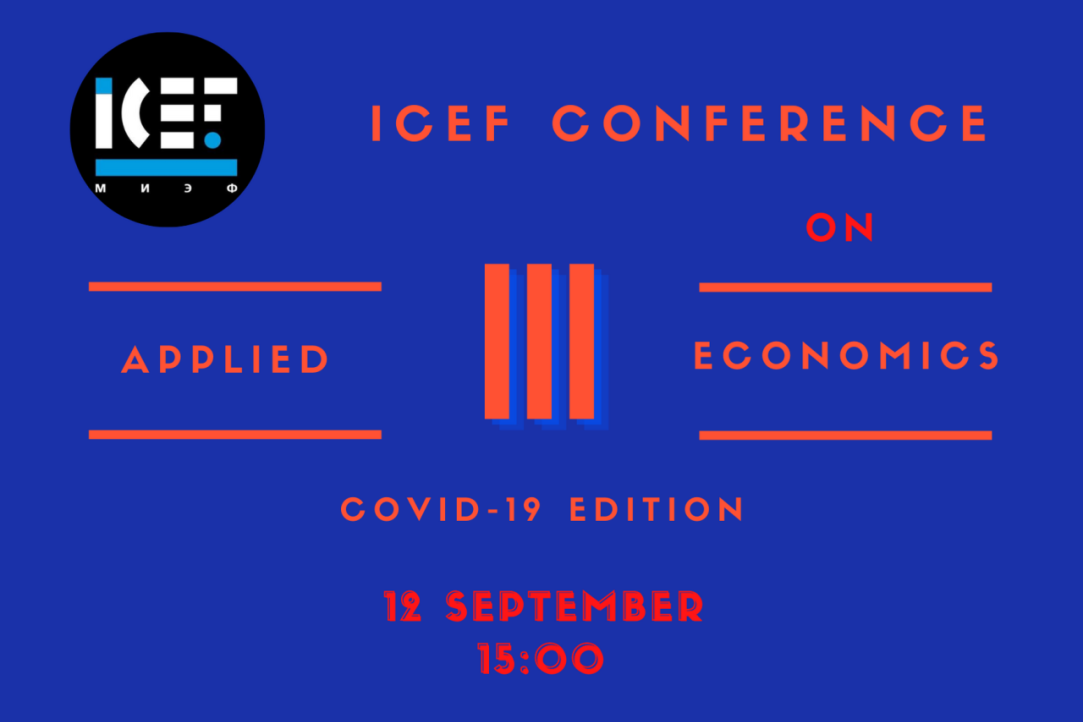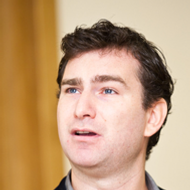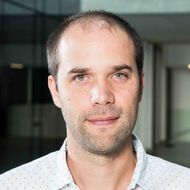New Inequality, Environmental Impact and Other Consequences of the Coronavirus Pandemic: III ICEF Conference on Applied Economics Focuses on COVID-19

This year, the ICEF Conference on Applied Economics will be held online for the first time ever. On September 12, experts from around the world will discuss the impact of the coronavirus pandemic on the global economy. The HSE News Services describes the papers that will be presented and why the organizers decided to devote this event to COVID-19.
The Conference on Applied Economics is being organized at ICEF for the third time. This year, it will not only be held online for the first time, but will also feature papers on a common topic — the current coronavirus pandemic (previously, the organizers selected papers based on the quality of submissions, rather than a single topic).
Fabian Slonimczyk, Associate Professor, ICEF, member of the conference’s organizing committee

The third conference will focus on the COVID pandemic, as this negative shock has had an outsize effect on literally the whole world economy. There are literally hundreds of good papers on the pandemic being published at the moment, so it made sense to let the conference reflect that reality. It was tough to select the papers for the conference. There are so many great papers on the pandemic being published at the moment! But I believe we have managed to put together a really nice set of papers, covering a range of aspects of the pandemic.
Conference participants will look at such issues as the difficult situation on the labour market, the impact of air pollution on COVID mortality, growing gender inequality in paid and unpaid work, and optimal unemployment benefits in the pandemic. Research groups from German, Spanish, Italian, and American universities will present their reports on the most critical issue of 2020.
Professor Slonimczyk believes that online events have the potential to reach a much wider audience. However, he hopes that in the future the offline format will be back. ‘Meeting people in person is not something we want to give up forever. It would be great if somehow we manage to get the best of both worlds, holding the event in Moscow but also broadcasting it online,’ comments Professor Slonimczyk.
Marco Francesconi, Professor of Department of Economics, University of Essex; member of the conference's organizing committee

Compared to previous editions of this conference, almost everything is different, except, of course, the high quality of the participants. Given the expertise and scientific experience of the presenters and discussants and given the content of the programme on Covid-19 issues, I expect to see an interesting exchange of ideas and a debate on policy relevant issues. Quite likely, these will have important ramifications for public policy initiatives in many countries around the world.
Thomas Le Barbanchon, Associate Professor, Department of Economics at Bocconi University

This conference will be my first contact with HSE. My paper is entitled ‘Job Search during the COVID-19 Crisis’. This is joint work with Lena Hensvik (Uppsala university), and Roland Rathelot (University of Warwick). This paper measures the job-search responses to the COVID-19 pandemic using real-time data on vacancy postings and ad views on Sweden's largest online job board. Overall, job search responses have the potential to amplify the labour demand shock. I chose this topic because of the current debate on how the COVID crisis impacts labor markets.
I expect economic research on the immediate reaction to the COVID crisis (during Spring 2020) to deepen thanks to the release of more accurate data on this period. New questions on the medium-run impacts will also certainly come about after Summer 2020. I see inequalities as a centerpiece of this new agenda. I would like to expand our understanding of the job search response during the current crisis to other countries than Sweden (the country of interest in my paper to be presented).
Dr. Ingo E. Isphording, Senior Research Associate & Team Leader at the Institute of Labor Economics, Bonn

The paper I will present is more a niche topic for me. Together with my co-author Nico Pestel, who is an expert on the productivity effects of air pollution, we study the impact of short-term exposure to ambient air pollution on the spread and severity of COVID-19 in Germany. We compare changes in deaths by population with local changes in air quality. We find significant positive effects of higher air pollution on COVID-19 deaths specifically for elderly patients (80+ years).
Our results imply that moving patients at risk aged 60 and above out of more heavily polluted areas might be a way to reduce the number of deaths by COVID-19. This implication might be of specific importance when the pandemic unfolds in less-developed world regions where air pollution and associated health risks are of much higher importance.
As for the changes in our lives due to the pandemic, I guess we will travel less, and I am looking forward to this. I always enjoyed conferences and seminar stays, but it is true that economists who should know best hardly ever internalized the huge external environmental costs they caused by their business travels.